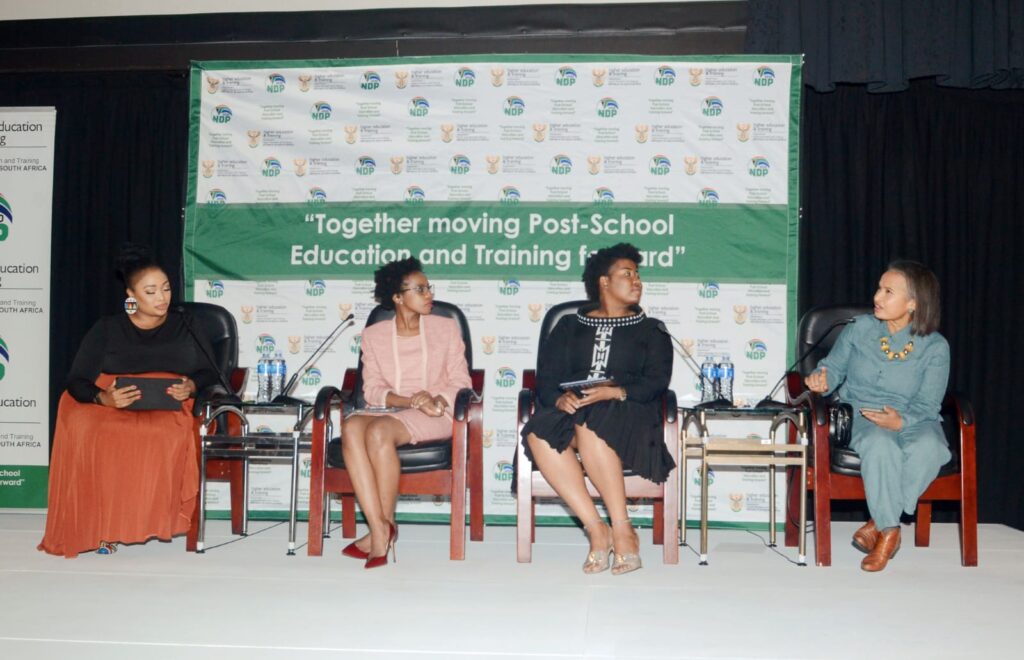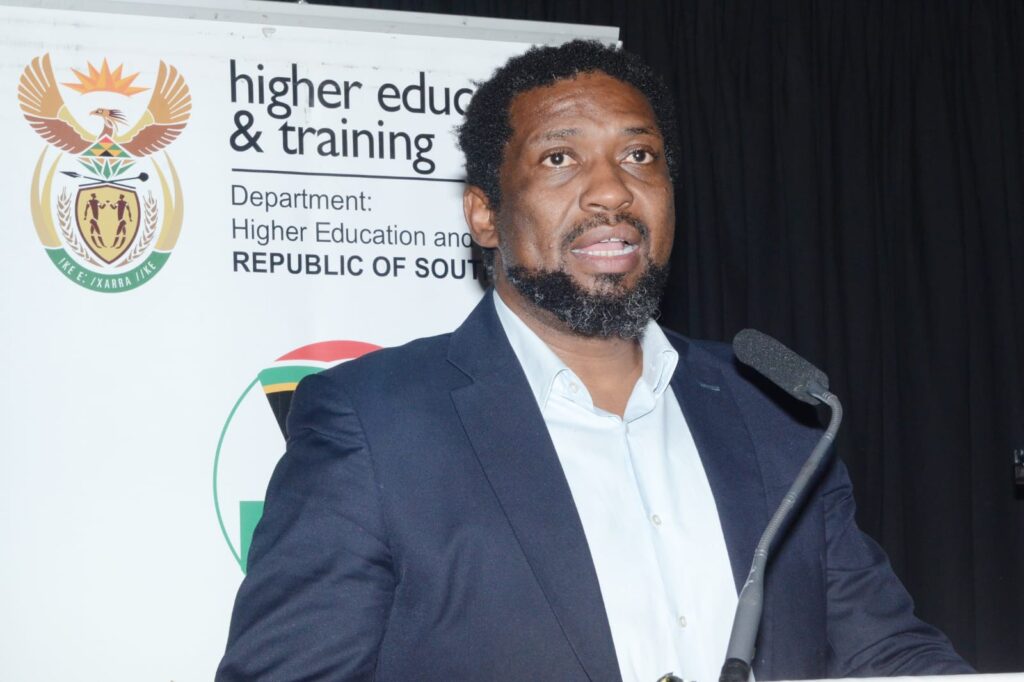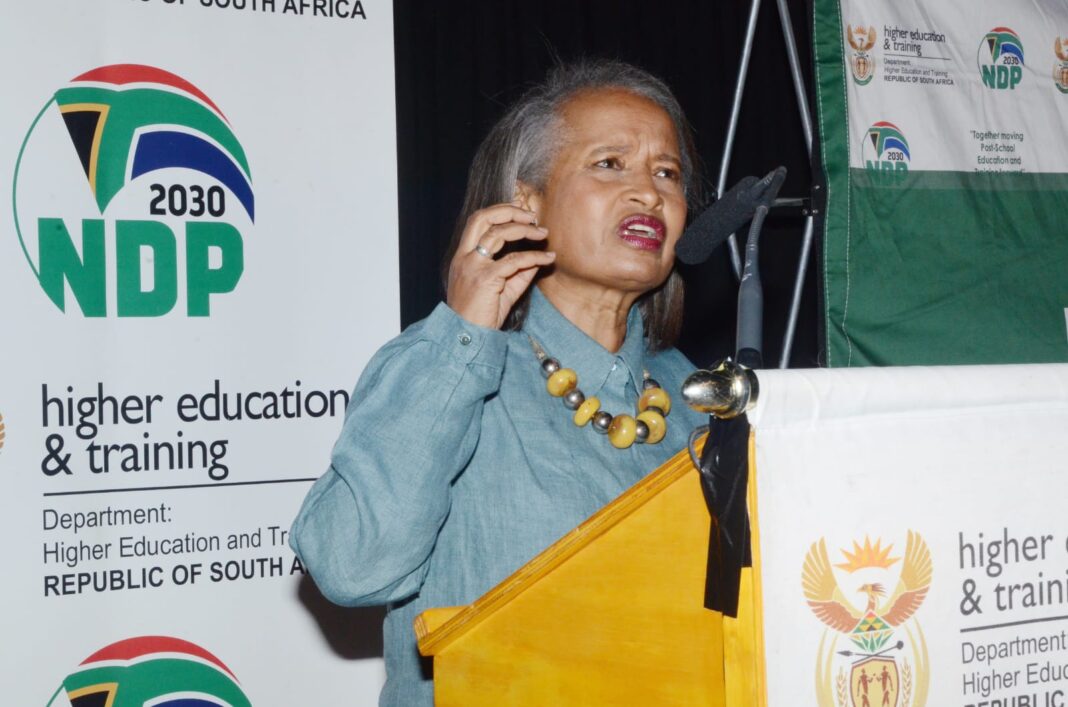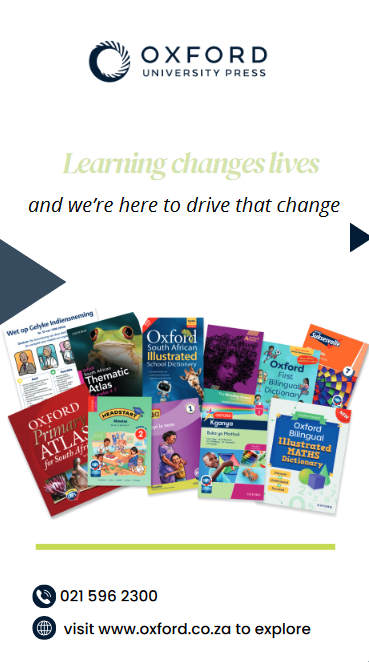Edwin Naidu
Understanding leadership with a burning ambition to lead, finding role models worthy of emulating, navigating potential curveballs and possessing a good dose of humility must be among the qualities one would need to become a successful leader.
This was the inspiring message from lifelong political activist Geraldine Fraser-Moleketi, the former Minister of Public Service and Administration and current Chancellor of the Nelson Mandela University in Gqeberha, in the Eastern Cape.
Delivering the keynote address at the Inter-Generational Dialogue hosted by the Department of Higher Education and Training and Inside Education at SciBono Discovery Centre in Newtown, Johannesburg, Fraser-Moleketi, sketched the gender landscape in addition to giving the audience made up of students food for thought on how they can drive change as future leaders.
She offered suggestions to ponder as young people learn to lead.
“Firstly, we must interrogate why we have that burning ambition to lead. That deep reflection and self-understanding lies in the kind of leader we will likely become and role models we will likely choose,” she said.

Secondly, Fraser-Moleketi told students that they must find role models worthy of emulating. “These would be people whose value is vested not in their material possessions and displays of excess alone but in their integrity, consistency and dynamism. These would be people who are not populists but rather women and men who are goal-oriented, focused, hardworking and humane.”
Thirdly, Fraser-Moleketi, who also served in senior roles in the United Nations Development Programme and as a Special Envoy in the African Development Bank, said leaders of substance and accomplishment have acquired adaptive expertise.
“They can field the inevitable curveballs that come their way merely by being human. No one is exempt. It is a fact that life happens to us despite our best-laid plans and strategies. Genuine leaders learn to navigate these roadblocks while never losing sight of the end goal. They courageously face the unknown, pushing against and through their fears and insecurities,” she said.
Fraser-Moleketi said there is a lot to be said also about the cultivation of clarity and humility – and compassion – as great attributes of leaders coming into their own.
Turning her attention to gender imbalances in the tertiary sector, she said there have been quite dramatic, and in many ways, positive shifts happening when it comes to the representation of women in higher education in the past decade alone.
Audited statistics for the period from 2018 – 2021 (bearing in mind that the pandemic and the retrospective nature of audited Higher Education Management Information System data will have influenced these.
According to current statistics, there was an overall 8.2 % increase nationally in the enrolment of black African females and a decline of 3.3% in the enrolment of black African males in 2021.
Overall, across all groups, there has been a 2.2% increase in female and a decline of 7.1% for male student enrolments over the same period.
Nationally, student enrolments stood at 1 068 046, with 849 246 of these being black Africans, comprising 524 337 females and 324 828 males. This represents 79.5% of total student enrolments in our universities and confirms current trends and provisional data, which indicate a majority of black and female enrolment at universities, with 62% being black African females and only 38% being black African males.
“When we look at selected data relating to staffing and leadership at our universities, we note that:
In 2021 more males than females had doctoral degrees, but more females than males had Masters degrees, providing yet further evidence of a growing cohort of females making their way up the academic career ladder,” she said.
Fraser-Moleketi said this is reflective of the increasing representation of women students, their success rates and their graduation rates, as indicated earlier.
As far as the gender of senior staff is concerned, in 2021, she said there were 1535 men and 1415 women in senior positions. This is a slight difference overall, but current (unaudited) estimates suggest that women at the Head of Department (HOD) and Director level comprise an average of 50% of this category.
This declines to 40% at the Executive Dean/Director level, 20% at the Deputy Vice-Chancellor (DVC) level and only 23 % at the Vice-Chancellor (VC) level.
Only six of the current 26 universities have women leaders.
Rounding up her inspiring talk, Fraser-Moleketi quoted the gender and education activist and Nobel Prize winner Malala Yousafzai: “I truly believe the only way we can create global peace is through not only educating our minds but our hearts and our souls.”

Deputy Minister of Higher Education and Training Buti Manamela thanked Fraser-Moleketi for the keynote address and other speakers’ illuminating contributions, saying that the session was one of many leadership capacity development programmes being implemented by the department focusing on student leadership. Last week the department engaged with students from TVET colleges.
He added that leadership is spoken about collectively to build ecosystems and networks that enable leaders to collaborate for good.
Manamela said when one looked at the role played by students on campuses, in most instances it related to problems or protests.
“But there is much more that student leaders can contribute, and many are doing remarkable things already,” he added.
This involved making do with limited resources, leaders were sharing and running specific programs to raise funds etc.
He told the audience that universities, TVET colleges and Community Colleges are social institutions where one learns, teaches, conducts research and develops knowledge. “But we want these social institutions to reflect and respond to who we are currently and the kind of future we imagine,” he said.
INSIDE EDUCATION










